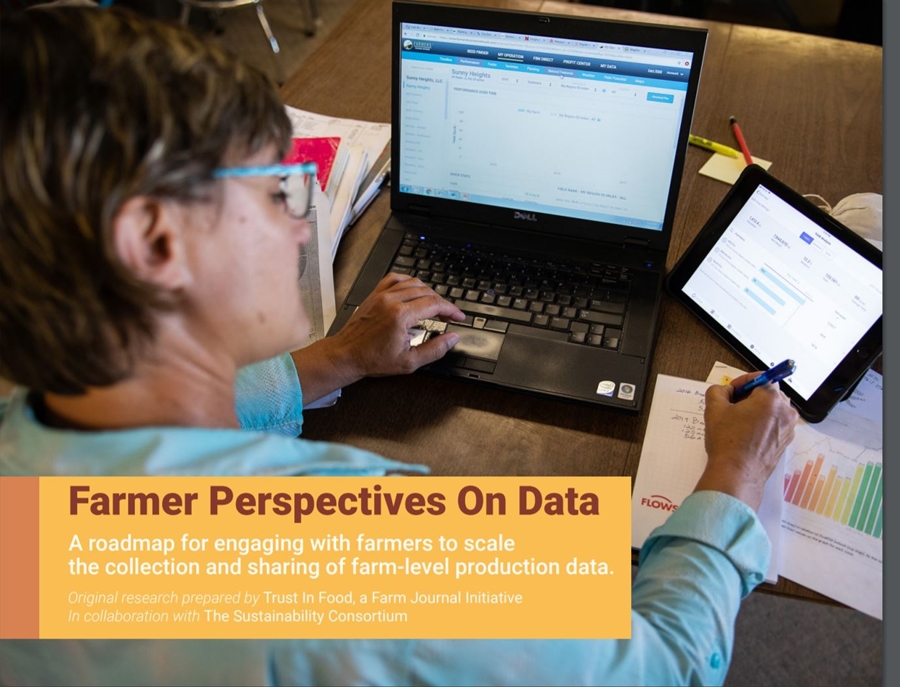
Several challenges prevent farmers from collecting and sharing data on production practices with downstream supply chain organizations, such as food companies and retailers, according to new research from Farm Journal's Trust In Food initiative and The Sustainability Consortium.
The Sustainability Consortium is a global organization transforming the consumer goods industry to deliver more sustainable consumer products. It was founded by the University of Arkansas and Arizona State University in 2009.
"This research provides the entire ag value chain with direct farmer feedback on the realities of farm-level data collection and sharing," said Mitch Rouda, president for Farm Journal's Trust In Food. "These insights will enable organizations to more effectively engage with farmers in the scaling of conservation practices and production practice transparency."
Farm-level production data plays a critical role in conservation and sustainability efforts for food, fuel and fiber supply chains. Despite this importance, according to previous TSC research, nearly 50% of food and beverage companies report having no visibility into the on-farm practices that produce the inputs they use.
To help close the gap between in-field practices and supply chain needs, Trust In Food and TSC surveyed American farmers on their perceptions of data collection and sharing. The resulting report, "Farmer Perspectives On Data," highlights insights from nearly 400 farmers in more than 40 states.
Key findings include:
- 62% reported not using data collection and sharing software during the 2019 season; of those who did, only about 30% say the software meets all their needs.
- Lack of access to capital, equipment, training and reliable data networks are the biggest barriers farmers face in scaling up their on-farm data efforts.
- 71% of farmers said their primary ag adviser or consultant has never suggested increasing on-farm data collection, data sharing or both.
- 49% of farmers do not believe their customer has a right to know how they manage their farm.
- Responses to open-ended questions reveal downstream organizations enjoying greater financial benefits from farm-level data sharing than the farmers who provide that data is a major issue farmers consider when deciding to share their data.
- 74% of farmers implement conservation agriculture practices because they believe it is the right thing to do for the environment; 61% use conservation practices to ensure they pass on a profitable and viable farming operation to the next generation.
"The results of this report show growers value data collection and the environment and they implement conservation agriculture practices on their farms, but there are several surprising barriers to sharing farm data," said Christy Slay, director of technical alignment for The Sustainability Consortium. "TSC is committed to working on these issues and barriers with our partners to ensure farmers receive the value they deserve for protecting natural resources and that the sustainability story brands communicated to retailers and consumers is enabled by the farm data reported into TSC's THESIS platform."
The report can be viewed at Farm-Data-TIF.
Topics
Contacts
Christy Slay, director of technical alignment
Walton College
479-595-3516,